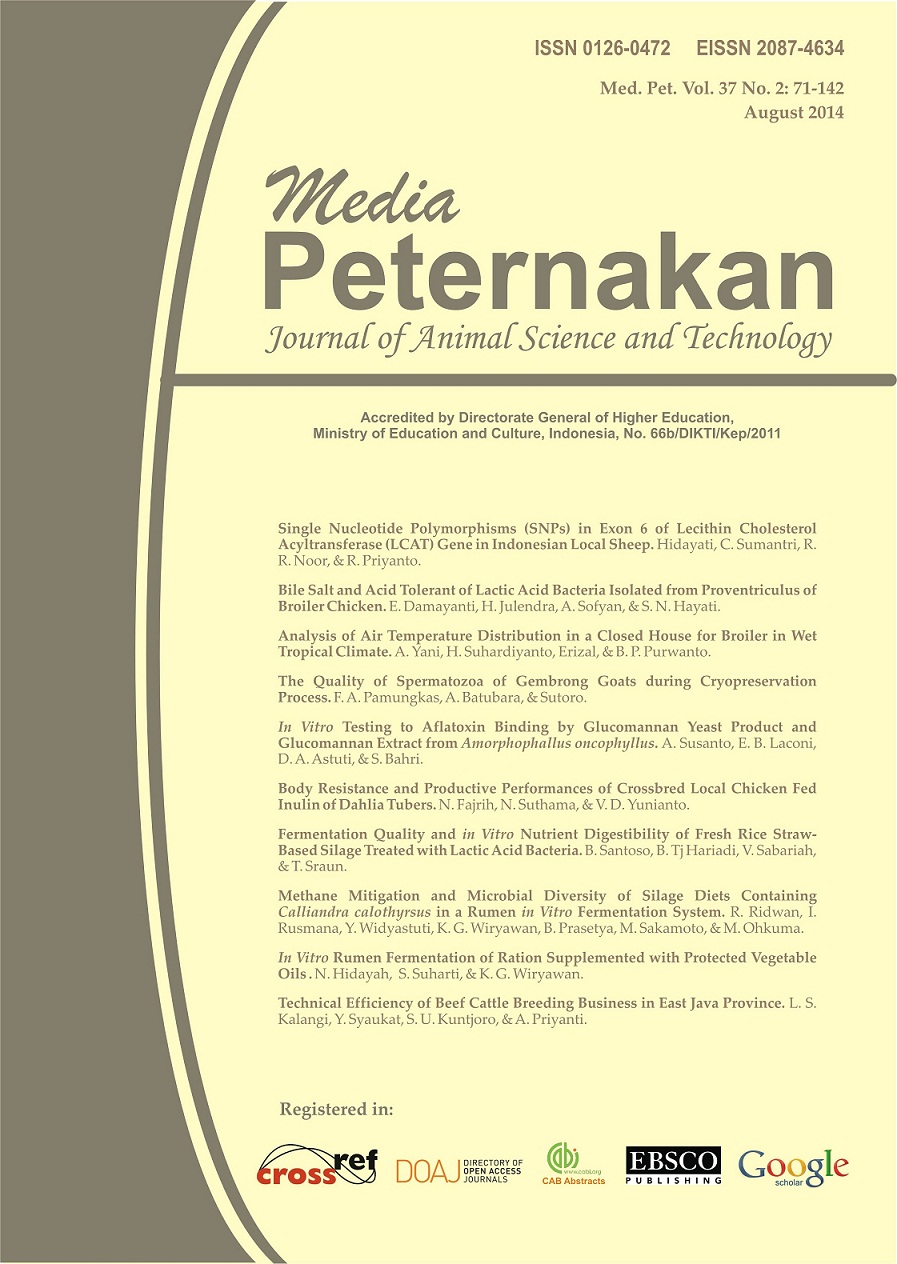Methane Mitigation and Microbial Diversity of Silage Diets Containing Calliandra calothyrsus in a Rumen in Vitro Fermentation System
Abstract
This study was conducted to investigate the effects of silage based diets on methane (CH4) mitigation and microbial diversity in a rumen in vitro fermentation. The experiment was arranged in a completely randomized design with five treatments and three replications. The dietary treatments consisted of varying levels of silage containing 50% Calliandra calothyrsus as follows K; 100% concentrate + pure tannic acid of 1 mg/mL, R1; 25% silage + 75% concentrate, R2; 50% silage + 50% concentrate, R3; 75% silage + 25% concentrate, and R4; 100% silage. The fermentation variables measured were total gas, CH4, in vitro organic matter digestibility (IVOMD), VFAs, pH, N-NH3, number of protozoa, and microbial diversity analysis. Increasing level of silages reduced total gas production, CH4 concentration, IVOMD, index of bacterial diversity, protozoal number, total methanogens and Methanobacteriales population. Diet with 25% to 50% silage decreased CH4 concentration, total gas production and IVOMD by 11.43%, 24.92%, and 18.73%, respectively. Ammonia N and VFAs (except butyrate and valerate) were significantly reduced (P<0.01) by increasing level of silages in the ration. In conclusion, this study confirmed that 50% silage containing C. calothyrsus was efficient in mitigation of enteric CH4 production by reducing total methanogens and Methanobacteriales number, but had negative effect on decreasing bacterial diversity and organic matter digestibility.Downloads
Download data is not yet available.
Published
2014-09-25
Section
Articles
Authors submitting manuscripts should understand and agree that copyright of manuscripts published are held by Media Peternakan. The statement to release the copyright to Media Peternakan is stated in Form A. This work is licensed under a Creative Commons Attribution-ShareAlike 4.0 International License (CC BY-SA) where Authors and Readers can copy and redistribute the material in any medium or format, as well as remix, transform, and build upon the material for any purpose, but they must give appropriate credit (cite to the article or content), provide a link to the license, and indicate if changes were made. If you remix, transform, or build upon the material, you must distribute your contributions under the same license as the original.



